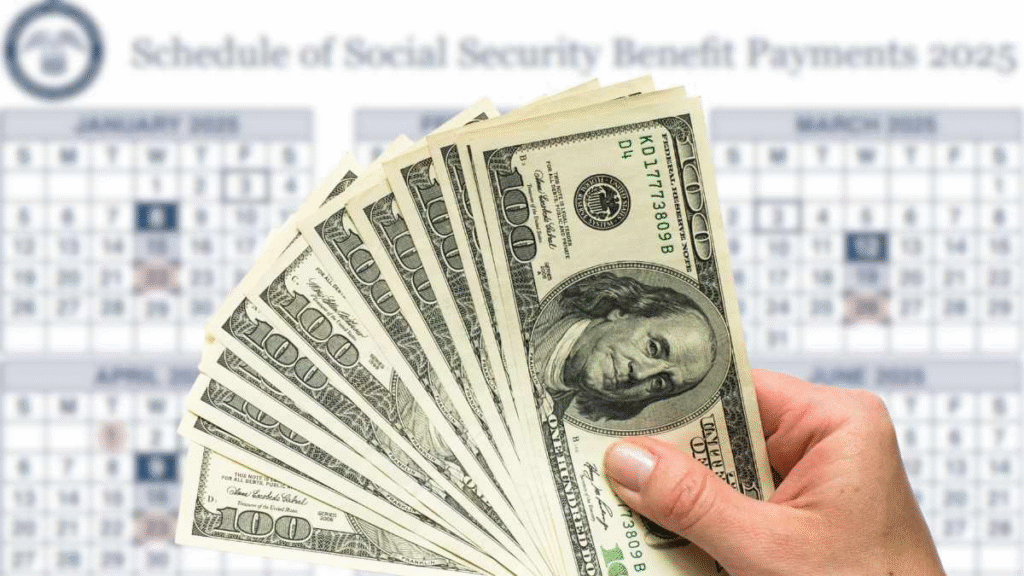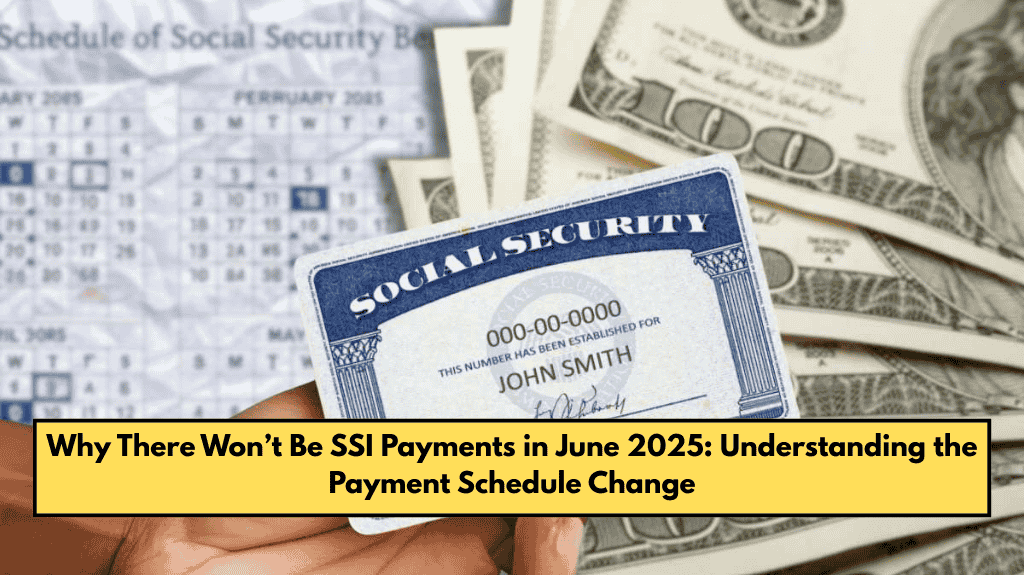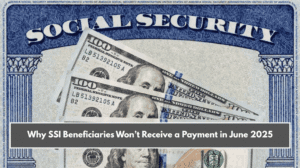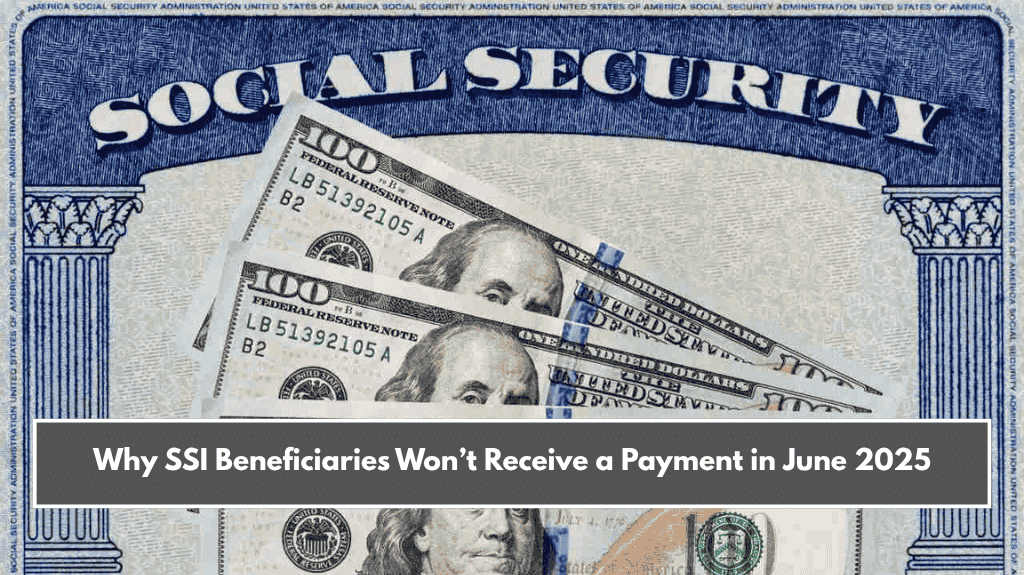If you receive Supplemental Security Income (SSI), you might notice something unusual this year — no SSI payment will be made in June 2025. Don’t worry, this isn’t a cut or mistake. It’s simply a calendar adjustment that happens occasionally because of weekends and holidays.
Why Is There No SSI Payment in June?
SSI payments are typically made on the first day of each month. However, when the first falls on a weekend or holiday, the payment is moved up to the last business day before.
In 2025, June 1st is a Sunday, so the payment for June was advanced to Friday, May 30th. This means:
- You’ll receive two payments in May (on May 1 and May 30).
- There will be no payment on June 1.
- The normal schedule will resume in July, when payment is expected on Tuesday, July 1st.
Other 2025 SSI Payment Adjustments
Some other months also have shifted payment dates due to weekends or holidays:
- August 1st payment is normal, but the second August payment usually on the 30th is moved to August 29 (Friday) because the 30th falls on a Saturday.
- November’s payment is moved from November 1 (Saturday) to October 31 (Friday).
- The January 2026 payment is advanced to December 31, 2025, since January 1 is a holiday.

How Much SSI Will You Receive in 2025?
The maximum monthly SSI payments for 2025 are:
- Single individuals: $943 per month.
- Couples (both receiving): $1,415 per month.
- Essential persons (caregivers): $472 per month.
Amounts can vary depending on your income, savings, and the state you live in, as some states provide extra supplements.
Can You Receive SSI Alongside Other Benefits?
Yes, SSI can be combined with other benefits like Social Security Retirement or Social Security Disability Insurance (SSDI), but there are important rules:
- If you receive other income like a pension or disability benefits, your SSI might be reduced because SSI considers all your income.
- Receiving a low Social Security pension may still qualify you for SSI, but the amount will be adjusted.
- If your SSDI payments are high, you might no longer qualify for SSI.
- Some state aids or subsidies may affect eligibility. For example, rental assistance or food stamps must be reported.
Reporting Changes Is Important
The SSA reviews beneficiaries regularly. If your income or resources change — like starting part-time work or receiving an inheritance — it could affect your SSI eligibility. Always report changes promptly to avoid overpayments or unexpected benefit loss.
The absence of an SSI payment in June 2025 is due to a calendar shift caused by the first of June falling on a Sunday. Beneficiaries will receive two payments in May instead. Understanding these adjustments helps prevent confusion. Additionally, knowing the payment limits and how other incomes affect SSI can help you better manage your benefits and avoid surprises.















